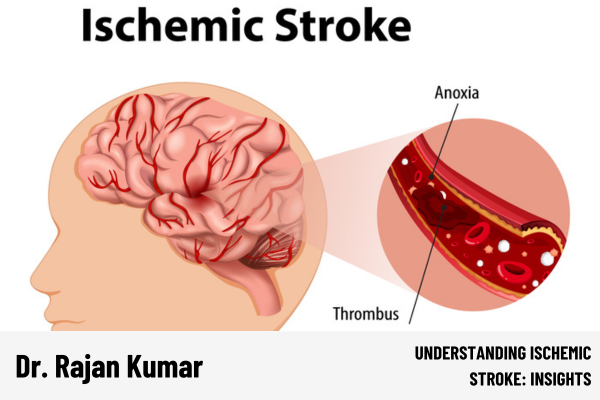An ischemic stroke occurs when a blood clot blocks or narrows an artery leading to the brain, causing a significant reduction in blood flow. Dr. Rajan Kumar, one of the best neurosurgeons in Kolkata, sheds light on the causes, symptoms, and treatments for ischemic stroke, emphasizing the importance of immediate medical attention.
Causes of Ischemic Stroke
Ischemic strokes are primarily caused by blood clots that form in the arteries of the brain (thrombotic stroke) or travel from other parts of the body (embolic stroke). Factors contributing to the formation of these clots include high blood pressure, high cholesterol, diabetes, smoking, and heart disease. Dr. Kumar highlights that understanding and managing these risk factors are crucial in preventing strokes.
Recognizing Symptoms
The symptoms of an ischemic stroke often appear suddenly and include numbness or weakness, particularly on one side of the body, confusion, trouble speaking or understanding speech, vision problems, dizziness, and loss of balance or coordination. Dr. Kumar advises that recognizing these signs early and seeking immediate medical help is vital for effective treatment and recovery.
Treatment Options
Treatment for ischemic stroke focuses on restoring blood flow to the brain. Dr. Kumar explains that clot-busting medications, such as tissue plasminogen activator (tPA), can be highly effective if administered within a few hours of symptom onset. In some cases, mechanical thrombectomy, a procedure to remove the clot using a catheter, may be performed. Post-treatment, patients may require rehabilitation to regain lost functions and improve their quality of life.
Prevention and Management
Preventing ischemic strokes involves managing risk factors through a healthy lifestyle. Dr. Kumar recommends maintaining a balanced diet, regular exercise, avoiding smoking, and controlling conditions like hypertension and diabetes. Regular medical check-ups and adhering to prescribed medications are also essential in stroke prevention.
Conclusion
Ischemic stroke is a medical emergency that requires prompt intervention to minimize brain damage and improve outcomes. Dr. Rajan Kumar’s expertise in neurosurgery provides patients in Kolkata with advanced treatment options and comprehensive care. By understanding the causes, recognizing the symptoms, and seeking immediate treatment, patients can significantly enhance their chances of recovery and lead a healthier life post-stroke.

